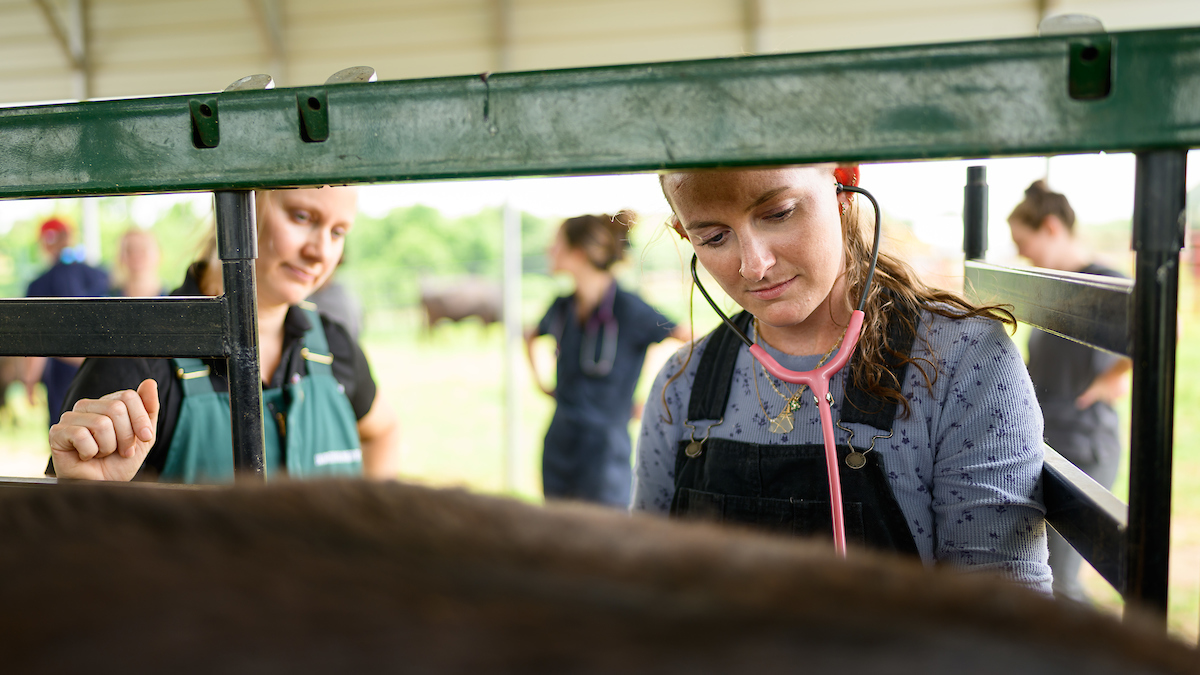NC State Researcher Developing Genetic Test to Support Canine Lymphoma Treatment Decisions
Matthew Breen, professor of genomics at North Carolina State University’s College of Veterinary Medicine, is the recipient of an award from the Chancellor’s Innovation Fund to develop a new genetic test that will predict how long a dog diagnosed with lymphoma and treated with chemotherapy will maintain a good quality of life.
The issue is important to owners as canine lymphoma is one of the most common cancers in dogs with an estimated 300,000 cases diagnosed annually in the United States. Without treatment, a dog with lymphoma may die within weeks. Standard chemotherapy treatment is effective for up to 85% of dogs, and 50% of these dogs will have extended quality life for at least nine months. However, opinion leaders estimate that fewer than 10,000 dogs diagnosed with lymphoma receive treatment.
To understand why this number is so low Dr. Breen polled members of the 175 purebred clubs registered with the American Kennel Club. He learned major factors influencing owner treatment decisions were cost, which can range from $3,000 to $8,000 depending upon the dog, and the inability of the veterinarian to predict how long a dog on chemotherapy would live. Similar answers were given when owners of mixed breed dog were questioned.

“Many owners said they would consider treatment if they knew that their dog would have a quality of life extended to at least a year,” says Dr. Breen. “Unfortunately, there is no current prognostic test that accomplishes this. We were able to address this need as part of our boarder, ongoing program in canine cancer research. We have developed an assay that predicts the duration of first remission of canine lymphoma when treated with standard of care chemotherapy.”
The goal is for this test, which will be available to all veterinarians, is to be accurate, fast, and cost effective, according to Dr. Breen, whose laboratory is part of the Center for Comparative Medicine and Translational Research.
“Importantly, our assay makes use of the same specimen that is already obtained by a veterinarian as part of routine diagnostic work-up,” says Dr. Breen. “There will be no need to require the veterinarian to obtain and submit any new or additional samples for our assay.”
The grant from the Chancellor’s Innovation Fund will allow the research team to validate the new test on a series of patient samples and take steps to have the test be commercially available to veterinary clinics by 2014.
[section_subtitle] About the Fund [/section_subtitle]
Established in 2010 by NC State with the support of Chancellor Randy Woodson, the Chancellor’s Innovation Fund is used for the development, protection, and advancement of NC State research ideas and discoveries and supports university researchers in developing the commercial potential of the discovery.
Located on NC State University’s Centennial Biomedical Campus, the Center for Comparative Medicine and Translational Research is a community of more than 100 scientists from five NC State colleges. These investigators are involved in collaborative ”One Medicine” studies with government, private, and academic researchers to advance knowledge and practical applications that improve the health of animals and humans.


